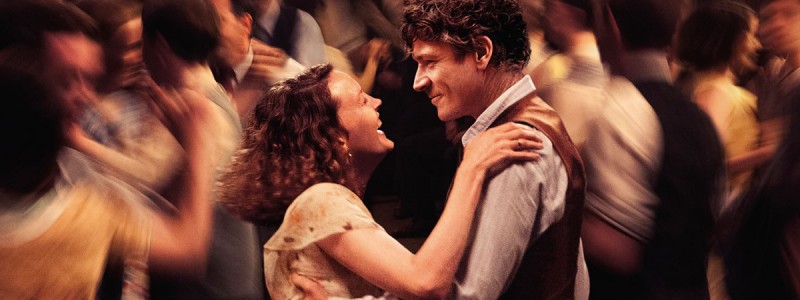A vision to turn a run-down building into a vibrant community arts centre, where the locals, for too long deprived of somewhere to meet, can come together to learn, read poetry, discuss politics, to dance. Add to this people with not only the vision, but also the drive to make that dream come true. Sound familiar? But this isn’t the story of Arthouse; the cultural phoenix that rises, albeit briefly, from the ashes is not in Crouch End but in remote County Leitrim, the most desolate of all the Irish counties. And the hero of Ken Loach’s Jimmy’s Hall faces difficulties of an altogether more draconian nature than anything Haringey Council’s Health and Safety department might dream up.
Setting up a cultural centre offering education, music and free thinking to the rural poor in 1930s Ireland risked beatings, deportation and death by the powerful forces of the Catholic Church and the landowning classes, now supported by the IRA. Based on a true story, Jimmy Gralton (Barry Ward) returns to his rural village after 10 years exile in New York to help his mother run the family smallholding. He arrives in an Ireland still scarred a decade after the Civil War, and a Republican movement split apart by political differences. Jimmy is a follower of James Connolly, whose Citizens’ Army led the Rising in 1916 and who was executed by the British, and after whom the hall is named. A hero of the rural poor, Jimmy is an active communist who incurs the full wrath of the Catholic Church when he decides to reopen the community hall. The parish priest is excellently portrayed here by Jim Norton with a sweet demeanour masking a deadly determination to rid the world of the likes of Jimmy Gralton. He takes to the pulpit to denounce ‘this craze for pleasure’ (with particular reference to the seductive jazz music Jimmy has imported from New York) with threats of eternal damnation. He stands side by side with the landowners through the cruel evictions, beatings, forced removals and ruling class brutality that you would expect from a Loach film.
It’s also a film infused with idealism, where the younger generation offers the great hope of a freer Ireland. There are underplayed encounters between Jimmy and his former love Oonagh (Simone Kirby) that are deeply romantic, and scenes of great tenderness between Jimmy and his mother, played by Eileen Henry in her first film role. The acting is first-class and the ravishing cinematography captures the bucolic beauty of the landscapes of county Leitrim. If sometimes Paul Laverty’s screenplay passes over the nuances of Irish politics in the 1930s and the dialogue slips into polemic, like all Ken Loach films, you come out feeling you’ve heard authentic voices from the real side of history. A powerful and uplifting film, and one not be missed.

